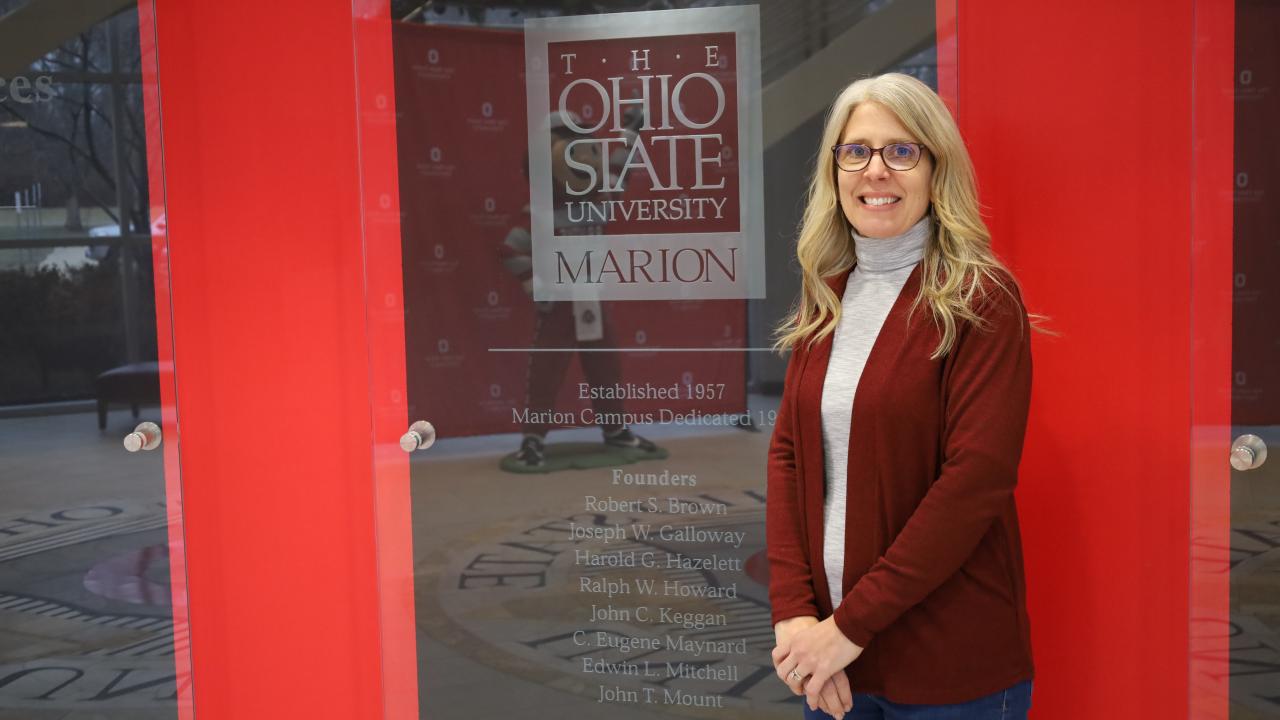FIRST GEN FRIDAY: Chris Trapp
Director of Student Success Programming
First Gen Friday is a monthly first-person narrative written by other first generation college students who are now fellow faculty, staff, and students at Ohio State Marion. The goal of the stories is to provide advice to other first generation college students and create a sense of belonging among the campus community.
I find so much enjoyment helping students navigate their college experience, especially those who are first generation. I’m the first person in my family to earn a college degree and I think my background gives me an appreciation for the variety of circumstances that students bring to campus.
I honestly don’t remember any mention of college until I got to high school and certainly didn’t think of myself as college-bound student. My dad was a dairy farmer and when money got tight, he added a second job working in a maintenance department. My mom was a stay-at-home mom who raised me and my siblings and cared for my great grandma who lived with us. When my dad had to get a second job, she took on managing the farm, too. Two distinct lessons learned in my childhood were to stick with a job until it was complete and to take care of those around you. If you share my background in agriculture, you can likely relate to one or both. Dairy cows required a higher level of care than many animals and make any effort to live a balanced life quite challenging. Cows need to be milked 365 days of the year – it doesn’t matter the temperature, how tired you are, how much you want to go out with friends, or how much homework you have. Farm work always came first. I learned that when others depend on you, that’s a priority above yourself. These lessons instilled a sense of responsibility that have been foundational throughout every phase of my life and career.
When I was really young, I remember thinking that working at McDonalds would be the coolest job ever! As I got older, I pictured a future similar to my parents just because I didn’t really know anything different. Then I got to high school and joined FFA, an organization that promotes and supports agriculture. That decision opened so many opportunities and helped me realize that my future could be something different than I that I had envisioned up until that point. I was able to travel and started to see examples of what someone with a college degree could do. I began to see college as my ticket to a future that was more than what I had always imagined. As my vision of what life after high school could be like came into focus, I applied and was accepted to Ohio State, majoring in agricultural education. My goal was to become an ag teacher. I knew pretty early on in my undergraduate experience that being an ag teacher wasn’t the best fit for me, but I didn’t have a better idea, so I stuck with that major. Throughout college, I met so many people who were willing to share their expertise, knowledge, and their own experiences with me. I had professors, mentors, and other staff who gave me opportunities to help me explore my views and learn to appreciate and value the differences in others . I loved the idea of helping college students navigate their experience the way so many helped me. I learned that I could pursue a master’s degree focused on working in higher education and that’s exactly what I did. I earned my Master of College Student Personnel from Bowling Green State University right after I finished my bachelor’s degree.
My family was always supportive of me being in college. I paid for most of my expenses, but they helped financially, as they were able. I relied on family for rides back and forth to campus during breaks or weekends that I went home. When it came to decisions about what classes to take, scholarships to apply for, internships to explore, and when I questioned my major, my family didn’t have the knowledge to help. I knew that and simply used my network of support on campus to assist with those decisions. No one ever made me feel like I should have already known the answers to the questions I had. That’s something I use in my everyday work with students. There are some things that seem like common knowledge when you work at a university but they’re only common because it’s your job to know them. Students new to the environment may be hearing terminology for the first time and I never want a student to feel like anything they learn here is something they should have known at the onset. My advice for any student, first generation or otherwise, is to ask for help when something doesn’t make sense and find your support network on campus.
